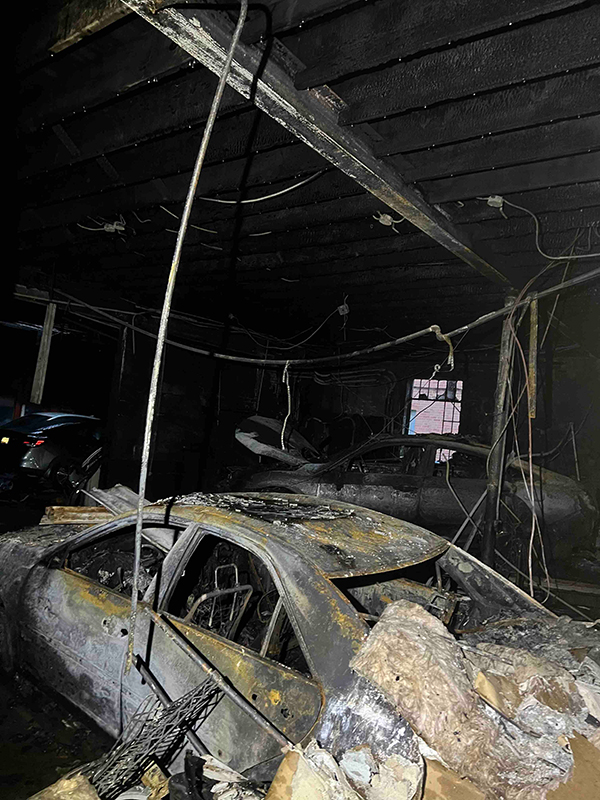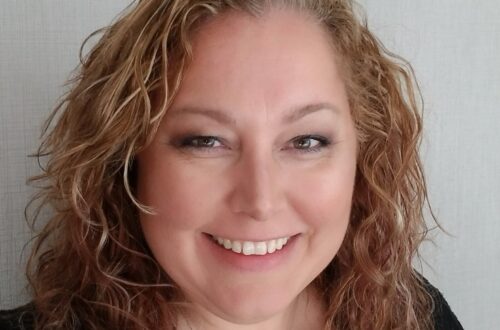
Your Business Insurance Coverage Isn’t Enough!
Published in Hammer & Dolly – Thomas Greco Publishing
Just like drivers purchase auto insurance policies to cover them in the event of a loss, shop owners invest in business insurance that will protect their assets if the unthinkable happens…but is it enough?
 According to Peter Kelyman of Wheaton Body Shop (Wheaton, MD), it probably isn’t, especially if your policy was written years ago and simply renewed without being thoroughly reviewed! Unfortunately, Kelyman learned this lesson the hard way when his shop went up in flames – literally! He agreed to share his story with Hammer & Dolly in hopes of preventing other shop owners from suffering a similar scenario.
According to Peter Kelyman of Wheaton Body Shop (Wheaton, MD), it probably isn’t, especially if your policy was written years ago and simply renewed without being thoroughly reviewed! Unfortunately, Kelyman learned this lesson the hard way when his shop went up in flames – literally! He agreed to share his story with Hammer & Dolly in hopes of preventing other shop owners from suffering a similar scenario.
Kelyman first met the previous owner of Wheaton Body Shop in 1995 when he worked as a delivery driver, and two years later, he sought a part-time job there while attending school. He started out washing cars and sweeping floors before moving up to receiving parts, writing estimates and eventually being promoted to assistant manager. In 2002, Kelyman became the shop manager; he bought the shop in 2007 and continued to build on the business’s reputation for quality repairs and customer service.
As the owner of a successful business, Kelyman made sure that his bills were paid, his equipment was updated as needed and his shop was insured, of course. “You never think something horrible is going to happen to you, but we were prepared if something did. Or at least, that’s what I thought,” Kelyman laments, stressing, “I want everyone to know what happened to me so they can learn from my situation and protect themselves.”
When tragedy struck on April 26, 2023 via an accidental fire that raged through the building, Kelyman’s initial thought was relief that no one was hurt. “Our employees were safe. None of the firefighters were injured. The fire didn’t even spread to the other buildings.
“But the damage to our facility was extensive,” he adds. “The whole building was completely burned inside; it was a total loss. Half the cars in the shop burned completely before the fire could be extinguished, and the other cars were so damaged by smoke that cleaning them was impossible and they also got totaled. All of our equipment in the shop and the office were either directly destroyed by the fire or damaged beyond repair by the smoke. Although our roof initially survived the fire, the shell of a building beneath did not provide enough support, so it ultimately collapsed from the weight of water from putting out the fire and subsequent rains.”
Over $2 million in damages – $1 million for the building and another $1 million to cover the shop’s contents and customers’ cars – was the final loss tally, but the actual cost would turn out to be higher as the process of filing a claim and learning how much the shop was underinsured would cause a lot of undue stress on Kelyman.
How exactly did the shop come to be underinsured? “There were a couple different factors,” Kelyman explains. “First, we had our policy set up 10 years ago based on an estimate of the building set to account for an annual inflation increase of five percent. Each year, we renewed without considering the fact that, over the past five years, inflation has been substantially higher than what was stipulated in the policy, so when it came time to make a claim, we realized that inflation had outpaced our policy increases and found ourselves in a situation where our insurance was not enough to cover the cost of repairs to the building and the cost of the building’s contents.”
It’s important to Kelyman that other shops learn what happened to Wheaton Body Shop so they can protect themselves from suffering a similar fate. “Contact your insurance provider to review your policy, understand what’s covered and determine if you need to increase coverage,” he advises. “It may be worth the time to inventory your equipment, tools and supplies to ensure you truly know what it would cost to replace it. Don’t forget to account for your employees’ toolboxes, which are considered personal property but can be quite expensive to replace.”
Shop owners who lease the land where their business is located should also examine whose policy covers the building and its contents, according to Kelyman. “It works differently if you don’t own the land, so just do your research to make sure you’re covered adequately. Just like the cost of everything in our industry, the cost of building materials has skyrocketed over the past few years, so your policy probably needs to be increased to account for those changes if you haven’t updated it lately.
“It’s like the story of the boiling frog; throw it in hot water, and it will jump out, but if you boil it slowly, it will boil to death,” Kelyman analyzes the situation. “We get so used to these small increases that we don’t pay attention. Sometimes, we have to slow down from the daily grind to tend to these types of business needs.”
Kelyman also suggests making sure that any contingencies on the policy are up-to-date. In his situation, the initial policy included a lien by an equipment leasing company, and although the lease was paid off years ago, the company was never removed from the policy. “We just never thought of it, but the insurer couldn’t give us the money without proof that we had paid them off. Meanwhile, that company had gone bankrupt, so we had to track down the company that bought them to verify they had no claim against our policy. And even after we resolved the issue, the insurer still wrote the check out to the wrong party and took months to reissue a check.”
Shops should also keep in mind: an insurer is an insurer is an insurer, as Kelyman was repeatedly reminded during the claims process. “The insurance company’s goal is minimizing losses, not helping us get back in business. It took three times longer for them to provide reports than it took for our public adjusting company (and I highly recommend hiring someone who will make sure you’re properly indemnified if you have a loss). Then, they would use reports contrary to our agreements. It basically took six months for them to provide the money for the building and its contents, so we were stuck at a standstill for half a year. So, even if you do have adequate coverage, don’t expect that money to be readily available!
“Additionally, the policy calls for continuing business coverage,” he points out. “They gave us a very small amount two months after the fire, but for six months, we were paying our employees and the shop’s bills with next to nothing from the policy. We had to use our business savings to stay afloat. From dealing with them on auto policies, we already know that insurers take their sweet time responding and don’t care, but it’s even worse on this side of the business. There’s absolutely no sense of urgency. Their primary purpose is to save money; we’ve had to retain a lawyer to sue for some of the losses that still haven’t been covered.”
In addition to the lack of money, Kelyman has faced a number of issues with the rebuild. He warns that there are permitting challenges, a lack of materials and a labor shortage. “There’s a matter of scheduling and getting things organized. It’s very complicated, and we’re only halfway there. Getting the permits to start construction presented challenges, and then there’s weather delays and all manner of nonsense to contend with.”
Kelyman is grateful to the support he has received from his friends and members of his community who have made donations to help sustain the shop and its employees. “It’s very touching and rewarding to see all the work you’ve done to help people being acknowledged through their support in these difficult times. What we do isn’t just about earning a living; it’s also about helping people get their lives back together after an accident, and for our community to recognize that service and return that aid to help us rebuild so we’ll be able to serve them again – well, it’s very motivating and helps me push through some of the challenges we’ve faced during this rebuilding process.”
Wheaton Body Shop is still under construction with quite a road ahead before the facility can be reopened, and Kelyman reminds shop owners to take steps to avoid dealing with this type of situation. “When you’re running a small business and constantly dealing with the rigors day in and day out, it’s easy to forget to pay attention to all the details. But these things need an additional look on a regular basis. God forbid something bad happens, but once it does, it’s too late. I hope this story inspires other shop owners to review their policies and take actions to protect themselves.”



